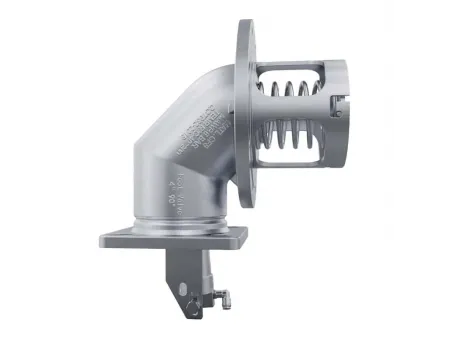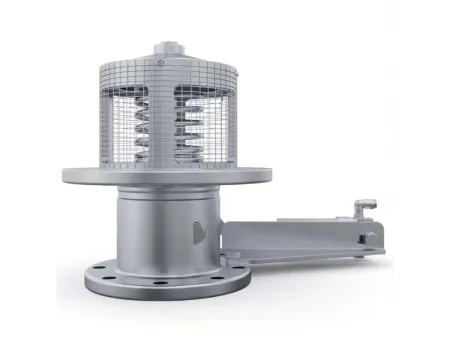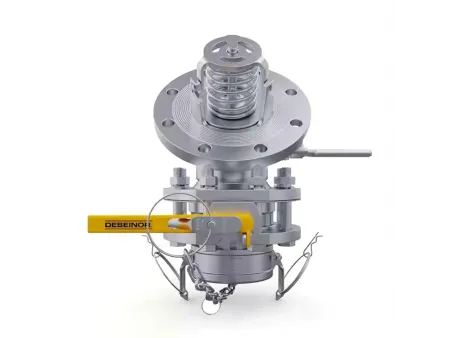Stainless Steel Tank Truck Bottom Valve
Tank Truck Valves
Emergency shut off valves for fuel tankers
- Compliant with BS EN 14432 and BS EN 144
- Nominal diameter: 3''/4''
- Nominal pressure: 1.6MPa
- Seal material: PTFE
- Body material: Stainless steel
- Installation: Flange
- Temperature range: -40℃ to 70℃
- Body angle: 180°/45°
Designed for chemical liquid transport, the stainless steel bottom valve is fitted at the bottom of fuel or chemical tankers for bottom loading applications. Its internal structure allows for low operating pressure and high flow capacity, making it ideal for transferring volatile or hazardous fluids efficiently and safely.
A key safety feature of this bottom loading foot valve is the integrated shear groove along the flange. In the event of a collision or external impact, the body of the valve is designed to break cleanly at the groove, absorbing force and isolating the tank from the piping system. This protects the internal sealing mechanism, prevents leaks, and significantly improves safety during chemical transport.
The stainless steel bottom valve can be configured with either an external air exhaust system or a manual pull cable design, offering operational flexibility to suit various tanker configurations and user preferences.
- The valve body is made from precision-cast stainless steel, offering excellent resistance to corrosion and chemical attack.
- Its cast construction and high-grade internal components ensure long-lasting durability, even in demanding transport environments.
- A high-lift valve core increases the internal flow area, reduces flow resistance, and enables maximum product transfer efficiency.
- The design complies with BS EN 14432 and BS EN 14433, meeting international safety and performance standards for chemical transport tankers.
Are your fuel truck emergency valves operated manually, pneumatically, or hydraulically? Which option is right for my application?
We offer two control options:
- Manual control, which is a cost-effective choice suitable for standard tankers but requires on-site operator activation.
- Pneumatic control, which allows for remote activation and is ideal for most modern fuel or chemical tankers, offering enhanced safety and operational efficiency.




